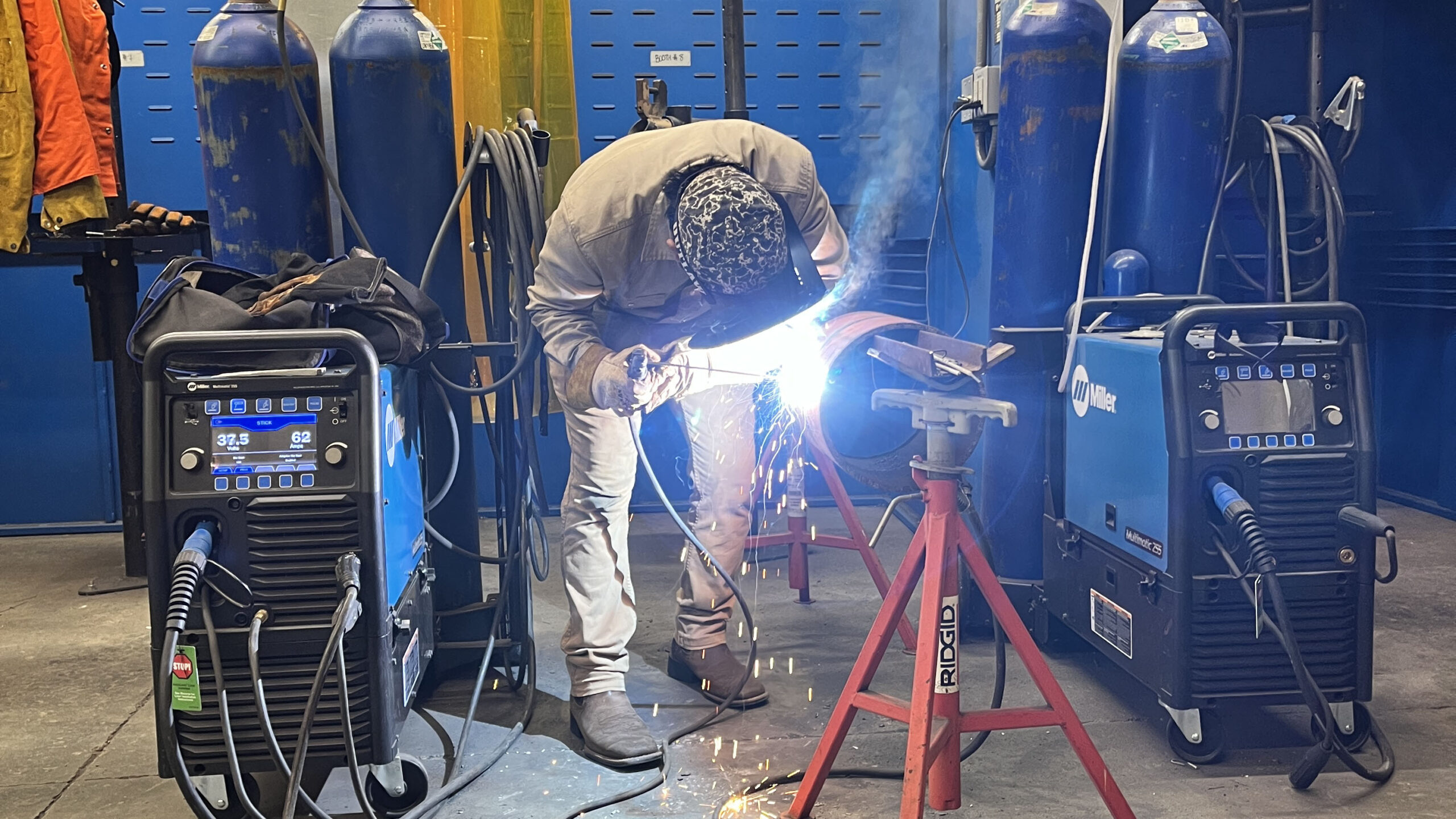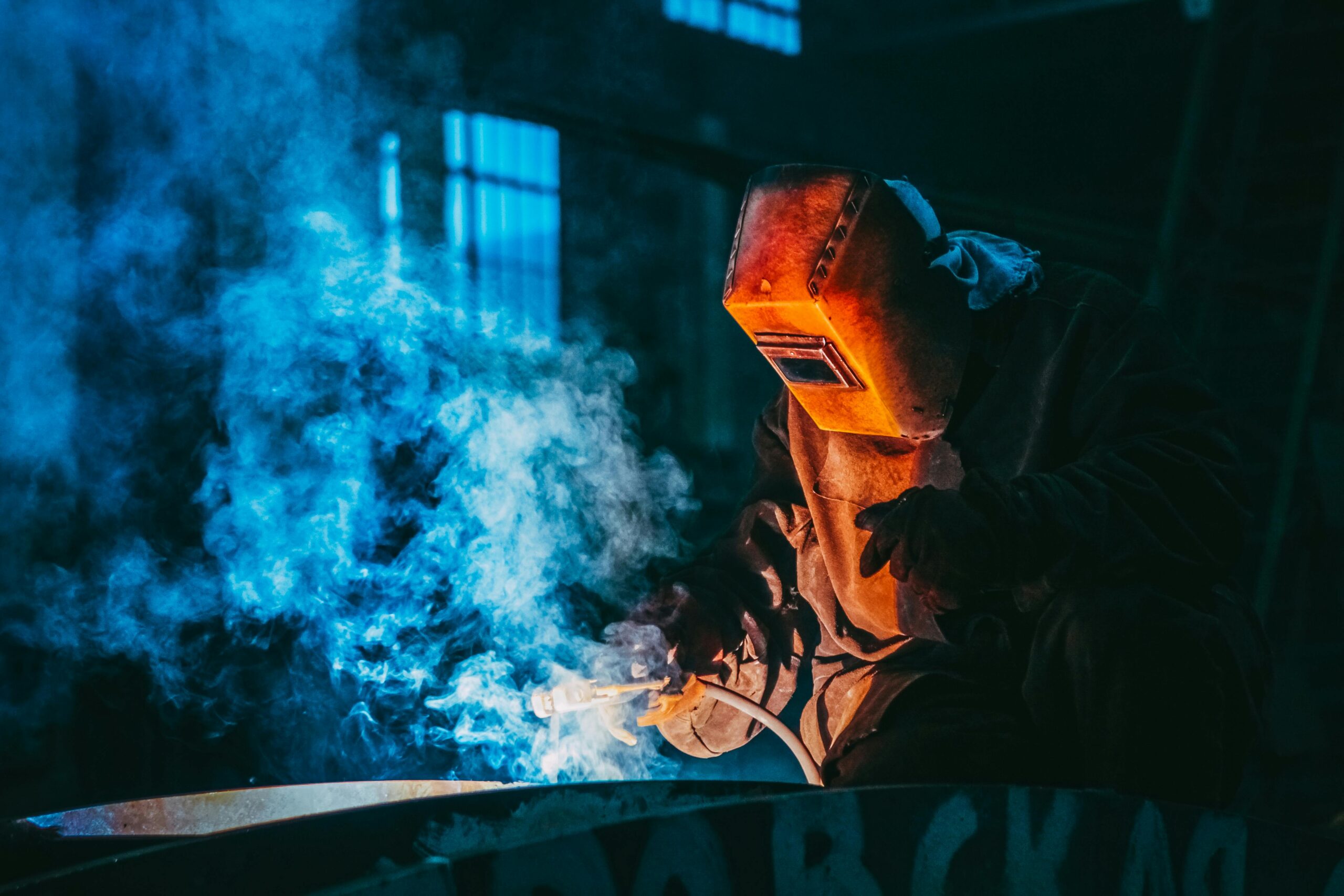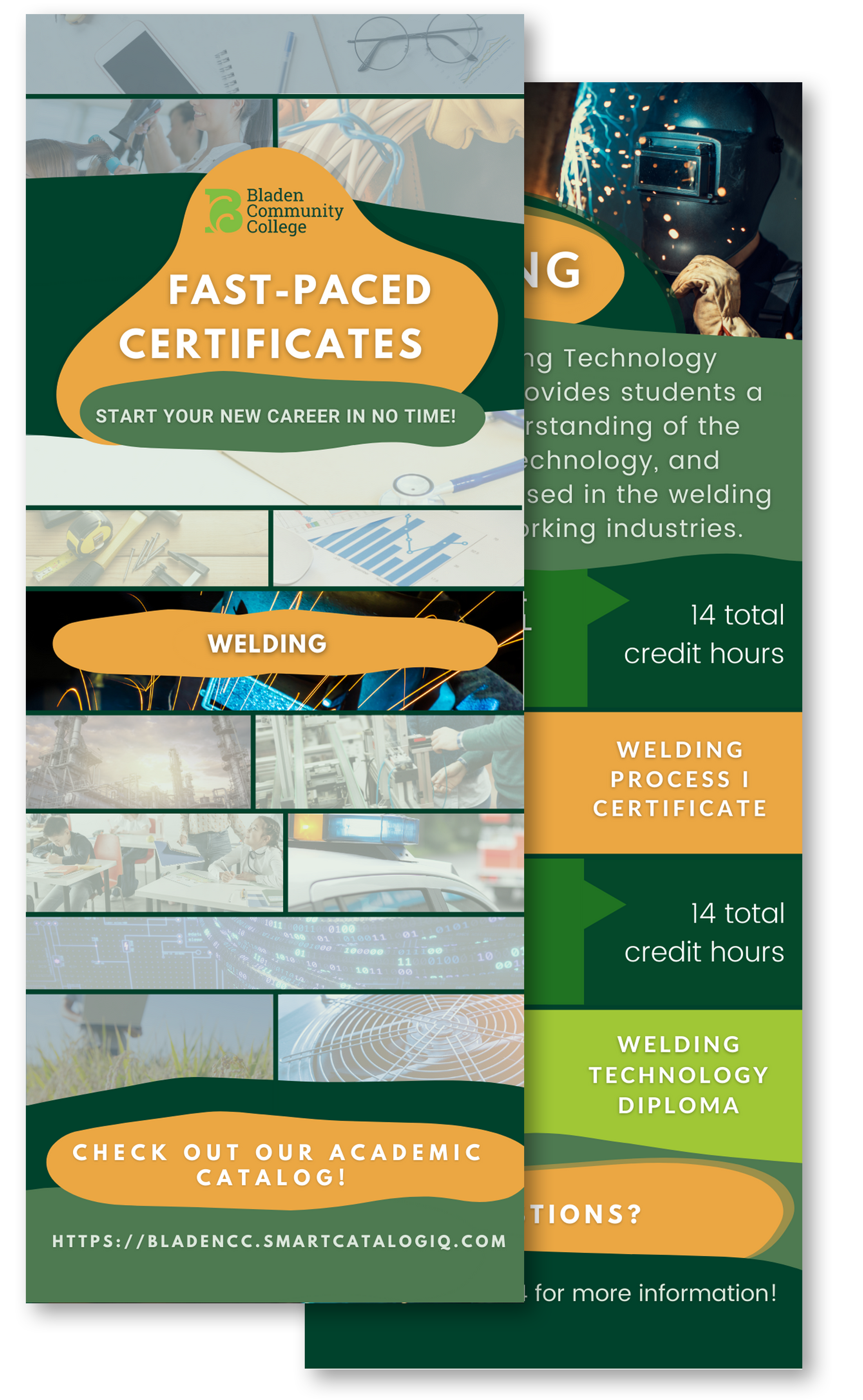Welding Technology
The Welding Technology curriculum provides students a sound understanding of the science, technology, and application essential for successful employment in the welding and metals industries.
Instruction includes consumable and non-consumable electrode welding and cutting processes. Courses in math, blueprint reading, metallurgy, welding inspection, and destructive and non-destructive testing provides the student with industry standard skills developed through classroom training and practical application.
Successful graduates of the Welding Technology curriculum may be employed as entry level technicians in welding and metalworking industries. Career opportunities also exist in construction, manufacturing, fabrication, sales, quality control, supervision, and welding-related self-employment.
This program leads to an Associate in Applied Science Degree. To qualify for admission into this program, the applicant must have a high school diploma or the equivalent.

Essential Skills for a Welder
A successful welder must possess a combination of technical skills, physical abilities, and problem-solving capabilities. Some key skills include:
- Precision and Attention to Detail: Welding requires accuracy to ensure strong and secure metal joins.
- Hand-Eye Coordination: A steady hand is crucial for controlling welding tools effectively.
- Mathematical Skills: Understanding measurements, angles, and calculations is necessary for precise work.
- Mechanical Aptitude: A good grasp of machinery and tools helps welders adapt to different welding techniques.
- Physical Stamina and Strength: Welding often involves working in challenging environments, requiring endurance and strength to handle heavy equipment and long hours on the job.
- Problem-Solving Abilities: Welders must troubleshoot issues related to materials, heat settings, and welding methods.

DeVane, Dr. Lisa
For More Information
Click Below
Our Student Success Story!

When I first got into welding, my dream was to open my own shop to build race cars. So, I enrolled at BCC to get started and graduated in 2020. I realized that starting my own shop wasn’t possible right away, but with the help and advice of my instructors, I was able to work a bunch of different welding jobs across the country—from the East Coast to the West Coast.
It all worked out, though, because when I came back home, I landed an instructor job at BCC. Now, I get to pass on the same guidance and advice to my students that made a big impact on me when I was in their shoes.
Mr. Kodi West- Welding Instructor

